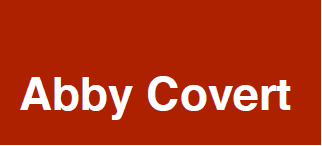What’s Hard?
All I need you to do is take everything you have made over the course of your master’s career and pick something to really dig into. Now while you pursue the needed research and executional production to see your thesis topic through, I need you to also write a book, give a talk, produce a video, keep a weekly blog about your work and eventually get a job as a result of all this.
Oh and don’t forget to be innovative, original, well-researched, and well-written. Also to be honest, it would be good if it also said something about who you really are as a designer.
You have 15 weeks from today to get that all done. Now Go. And please for your studio mates’ sake: remember to shower and try not to cry (audibly)
—
Today began the 15 week long journey of bringing 15 designers through the final semester of their thesis work at SVA’s Products of Design.
The above is not a direct quote but it is the information I delivered in my first class today.
I can assure you that the content I used to deliver this information was a bit softer. But none-the-less, I dropped a huge mess in the laps of 15 bright designers this morning.
The class I teach is called “Information Architecture & Resolution” it focuses the students on looking across all the various mediums and messages they are working with to help them find resolution enough to present their work. It is my job to help them focus on clarifying and iterating on the language and structure of how they present their work.
Our specific program comes with some unique requirements for graduation. We have them write and typeset a 25,000 word book, deliver a short TED style talk in an actual theater in front of actual people, produce a video that can stand for their work when they aren’t available to, and keep a weekly progress blog to assist in documentation of their process as it unfolds. To get this all done, we have lots of deadlines, checkins and deliverables. And yes, lots of rules. Sounds like we are really fostering creativity doesn’t it?
Last year, while teaching this class for the first time, I had many moments of wondering: Why do we do this to them? Why not just let them show pictures of designed objects and call it a day like other programs? Why all this pressure?
I had to rethink all these terribly uncomfortable nits and nags recently while reworking my syllabus. This time, I landed on one heck of a rough question. One wrapped up in self esteem issues and self doubt:
Does our thesis process make them into stronger designers or is it box-checking bureaucracy we put them through to graduate?
It’s a honest and hard question to ask when it is your job to guide thesis work. But I had to ask it. Not just in my head, but out loud. Again and again. And then here, now.
Because I had to know if there was inherent value in the “getting there” part not just the “done that” part. It seems simple in hindsight but as most things are, it was all blurry to me then.
I think that, like anything, this thesis process “is” what each student makes of it. If a student comes into this thinking “I have to do x, y, z just to get my diploma?” or “I am so almost out of here, I’ll just coast this thesis thing” — then there is little I will be able to do to dissuade them from this line of thinking.
But I can warn them that this mindset will result in them having a rougher 15 weeks, which are already naturally punctuated with enough “breakdowns” “breakups” and “breakthroughs” to overwhelm even the most prepared students.
It is now my working hypothesis that the thesis expectations we set for our students are pretty spot on compared to what they will encounter in the real working world of being a designer.
Because all designers deal with:
- Rabbit holes of complexity that would be better explored than not explored.
- Concepts that are hard to pin down because they have many moving parts.
- Talking out loud about work and decisions made.
- Being able to get your message across without you being there.
- Choosing words to represent our ideas.
- Words getting in the way of collaboration with others.
- Other people getting in the way or disagreeing with you.
- And last but not least… be it fifteen weeks, a year or three days, work expands to fill the time allotted and the allotted time never seems like enough.
So with a resolved sense of my own purpose as a teacher and solace in the thought that I could be more than a paper-pushing bureaucrat in their lives, I have soldiered on, and taught my first class.
The major lesson I learned from this recent self reflection is:
Everybody needs to ask hard questions about their work. Even teachers. Especially teachers.
Thanks for reading.
